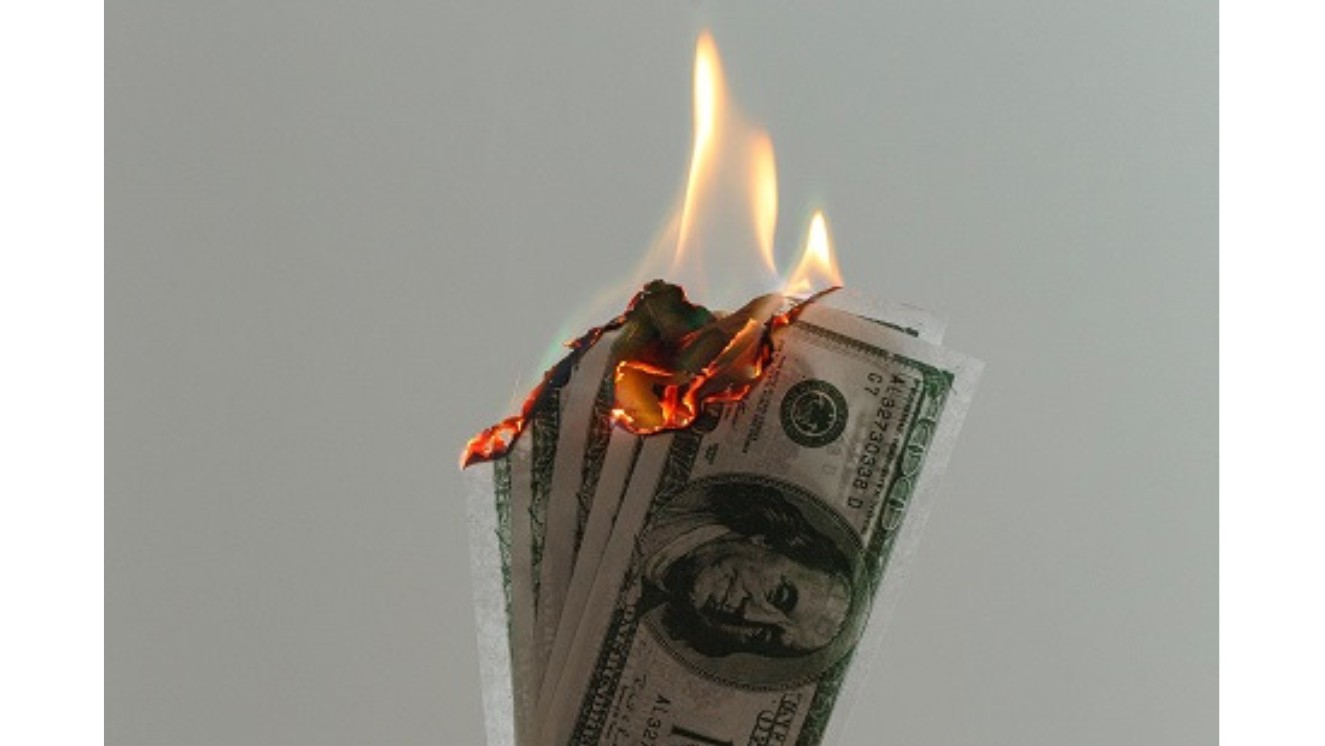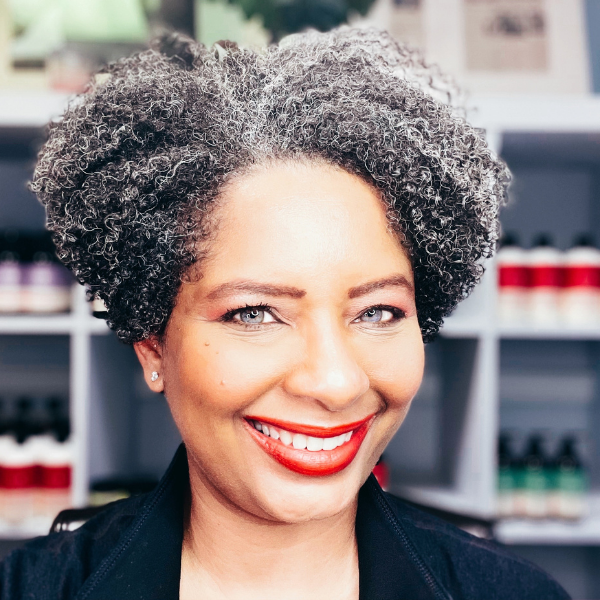Ever get that sinking feeling like you just can’t get ahead with your money? You’ve got job security, you’re earning a respectable wage, you finally plucked up the courage to ask for that raise a few months ago- (and got it!!) and you paid off that credit card debt that’s been hanging over your head since the dawn of time... By all rights, you should be feeling pretty financially comfortable now, right?
So why do so many of us feel like we’re still waiting for the warm fuzzies of financial security to kick in? You’re making good money and think you’ve got a pretty good handle on responsibly managing your expenses, but you’re still not seeing your bank balance budging anywhere beyond breaking even. You’re not falling behind... but you’re definitely not getting ahead either. You just can’t seem to jump off that carousel of living paycheck-to-paycheck.

Here’s where the penny dropped for me: A close girl friend and I have brunch about every 2 months and we spend BIG. It’s more of a restaurant and bar crawl on a Sunday (especially if it’s football season) where we want to try as many dishes as we can on every menu. It’s expensive, but we never feel bad because it’s a nice treat. Well, for the first brunch of 2020, my girlfriend informed me that while we’d still be getting together to hang out... We wouldn’t be eating out with our usual flair. Instead, we’d be meeting at our favorite farmhouse coffee bar for a more humble meal, Tea and Scones. Because this year she was going to be focusing all her extra money on some bigger goals. So, while our quality time would not be changing… the amount of money we’d be spending when we got together would be. I was perfectly fine with that plan, we were on the same page. We’re trading in eating big in favor of better trips, less debt, and renovating houses.
We both wondered why it took so long to realize the benefits this small change could provide; to look up and say, “Wait! All those cocktails added up to new floors or a cruise!” To pause and consider, is that really what I wanted to do with my money? We all want to make sure we manage our money day to day for financial security and to live our best life.
So what’s the kicker? You may be unknowingly falling prey to some little overlooked tendencies. Here are the habits that have been standing between you and finally grasping that feeling of financial freedom...
YOU’VE GOT A HOLE IN YOUR POCKET

Time to think small. If your money is seemingly slipping through your fingers, your spending habits probably started increasing gradually, and snuck up on you because you just weren’t paying attention. When we feel like we can afford things, we’re less likely to budget carefully, or pause to truly consider our purchases.
It’s easy to become complacent when our income increases and we stop being as careful as we once were, not thinking we need to watch our expenditures like a hawk anymore. But those little things you spend money on all add up. Before you know what’s hit you… your pay rise and newfound financial wiggle-room have vanished into a designer purse, a gym membership at that trendy new studio three times the price of your old place, and a phone upgrade.
These purchases might not be an issue this month, but they may just be if you get into the habit of living beyond your means. Of course, celebrate your successes and spoil yourself occasionally for your hard work… But really think about if those new shoes are going to feel better on your feet this week, than knowing you can afford to buy a new car next year.
It’s uncertain who first coined the phrase- “Pay attention to the pennies, and the pounds will take care of themselves” ...But we know for sure that they were onto something.
Don’t...
- Fall into the trap of “Lifestyle Inflation”. This quiet phenomenon occurs when we spend more money as our income increases. In the blink of an eye, you’re spending as much as you’re earning and not putting any money away for a rainy day, or for big-picture projects.
- Swipe that plastic with careless abandon. Our minds trick us into thinking it’s virtual money, which dissociates us with the act of spending. The credit card bill is still going to show up in a few weeks, just like it always does. Try paying with cash as much as possible to become completely aware of your hard earned dollars changing hands.
- Indulge in a few glasses of wine and jump on Amazon at 2am. Even the most disciplined among us have fallen prey to reduced inhibitions and forgotten consequences when “Shopping Under the Influence”
Do...
- Remember how you used to really chew things over before pulling the trigger on purchases when you had a tighter budget, which helped you avoid those impulse buys.
- Carefully consider purchases, assessing what the impact will be on your budget for the rest of the week/month/year, should you decide to go ahead and buy it. For big purchases, even try to sleep on it for a fresh perspective.
- Keep a written record of your purchases and expenses, so you can review at the end of each week and make sure you’re not accidentally spending more than you’re making.
YOU'RE NEGLECTING TO ASK YOURSELF IF YOU REALLY NEEEEEED IT

When we become accustomed to indulging in little luxuries on the regular, their novelty value wears off pretty quickly. Those things that were once a treat- like going out to eat at a restaurant with your work colleagues a couple of times a week instead of packing your lunch from home- can quickly become an expectation and a necessity in your mind. They’re not special anymore, because now you feel like you need them.
Clever budgeting requires you to critically examine your attitude toward expenditures. That means being totally honest with yourself. Assessing what you’ve subconsciously categorized in your mind to be a need, versus just a want.
Some of our wants that are masquerading as needs can be easy to miss. Our little habits, like buying a $5 coffee every day when there’s perfectly good coffee in the break room, or getting UberEats every Friday night~ just because. We do so many of these things every day without really appreciating them, thinking we’re fulfilling a need rather than indulging a want. Not only are we devaluing and taking the shine off the pleasure of these experiences, but we’re potentially missing out on taking that Maldives vacation sooner. So when you can separate the two, and be honest with yourself about whether these purchases are crucial to your existence, or just a nice punctuation to your day... You’ll be better armed to make smart choices when it comes to where your money’s going.
Don’t...
- Assume every want that you fulfill is wasting money. Sometimes having a pedicure with a friend, or getting your hair done at the salon actually boosts your overall sense of wellbeing and mental state, making you feel like all this hard work is worth it. Just make conscious smart choices when it comes to succumbing to these wants, and own it. Enjoy the experience completely.
- Be hard on yourself. It might be a bit of a process retraining your thinking out of just absentmindedly spending without much consideration. You’ll get the wind in your sails and be super motivated to keep going after a couple of weeks of making little savings, when you see your bank balance start creeping up again.
- Cave in to instant gratification. If you save up for something and buy it when you really are in a financial position for it to make sense, it’ll be so much sweeter when you do get your hands on it.
Do...
- Learn to separate needs from wants. Ask yourself- do I really need this thing/experience/service, or do I just want it? What will happen if I skip it even just this one time? Will I be ok? If the answer is yes… you know what to do.
- Daydream. Instead of dwelling on what you’re missing out on, try planning out what you’re going to do with all the money you’ve saved by resisting some of your impulses. A bit of restraint on the front end can add up to a beautiful new apartment, or nice contribution to your retirement fund in no time.
- Appreciate every little thing. Embracing a feeling of gratitude for life’s simple pleasures will increase your happiness tenfold, and you won’t feel like you’re depriving yourself of anything. That shift can be as small as feeling grateful for your health; or for your ability to cook dinner at home in your beautiful kitchen, then take a walk afterwards to enjoy the sunset.
YOUR SHORT TERM GAINS ARE ECLIPSING YOUR LONG TERM GOALS

Have you set a clear intention for where you want your life to go? We know that money can’t buy happiness, but it certainly helps with achieving some of those big goals. It can be difficult to keep your spending in check for the greater good when you haven’t set any goals to work toward.
When you create a clear picture in your head about the reasons you’re saving money, and visualize the goals you hope to achieve with those earnings, it becomes a piece of cake to prioritize your dollars in that direction. Have you been working so hard so you can blow this week’s wage on a fancy dinner and post pictures of it on Instagram... or so you can make meaningful changes to your life?
Figuring out your financial goals helps you actually feel good about saying no to a couple of short-term upgrades in your life, because doing so will help you take a positive step in the direction of your dreams. You won’t feel like you’re depriving yourself if you know the money you saved by skipping takeaway tonight is going toward your kid’s college fund, retiring 10 years sooner, or buying your dream home.
Don’t...
- Get down in the weeds of the everyday. Planning ahead and dreaming is meant to be fun and inspiring!
- Get overwhelmed. This is a long-term goal, so treat it accordingly. You shouldn’t put your enjoyment of life on hold completely and miss out on lots of awesome experiences just to save every penny for a day that seems like it’s forever away. Life is to be enjoyed, just make sure you’re getting maximum bang for your buck with the financial choices you make, and consciously weighing up the benefits.
- Compare yourself to others. The futures people imagine for themselves vary as dramatically as the person, so your aspirations could require a bigger or smaller financial commitment to achieve than other people you know. You may earn more or less than your friends, but at the end of the day, does that really matter? Just be sure to surround yourself with people who build you up, and are on a similar trajectory of growth. That way, you have a cheer squad and you can work toward your goals together.
Do...
- Get specific about what you want out of life. Decide what you want to accomplish, the possessions and assets you’d like, and what sort of adventures you’ll go on.
- Work out how much money it’s going to take to get you to where you want to be. And then work out how you’re going to get your bank balance to that figure... Rise and grind. Be an innovator. Put yourself out there.
- Ask for advice. Research investment opportunities, and consult with financial advisors who can help you zero in on your earning capabilities.
--------------
As with all things, balance is paramount. Once you’ve identified any negative spending patterns in your daily habits, you then have the choice to make a commitment to improving your long-term financial position. You have the tools to nurture your financial future, and make your dreams a reality. It just takes a bit of discipline and changing the way you look at some things.
At the end of the day, remember that these informed choices are empowering you, all your hard work is paying off, and you’re in the driver’s seat.
It’s a pleasure to be growing and striving for more, with you all.
~Keneesha.





